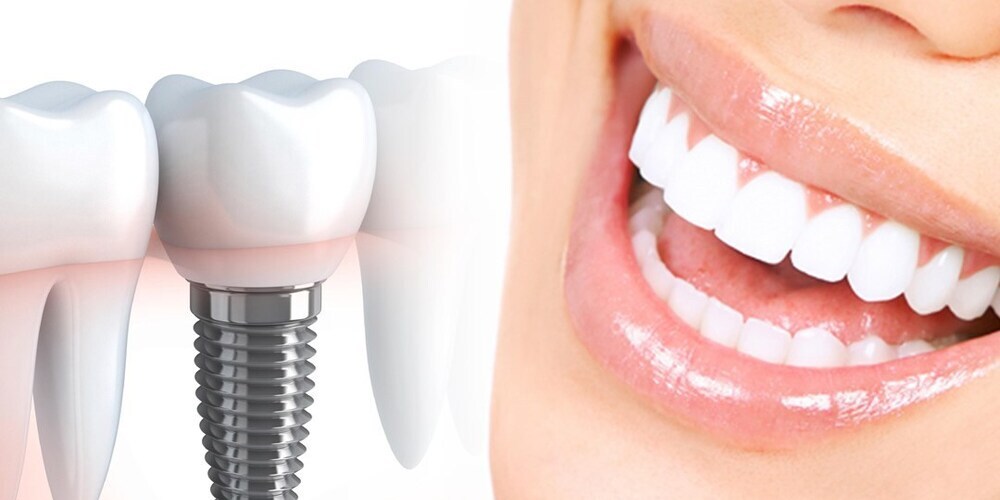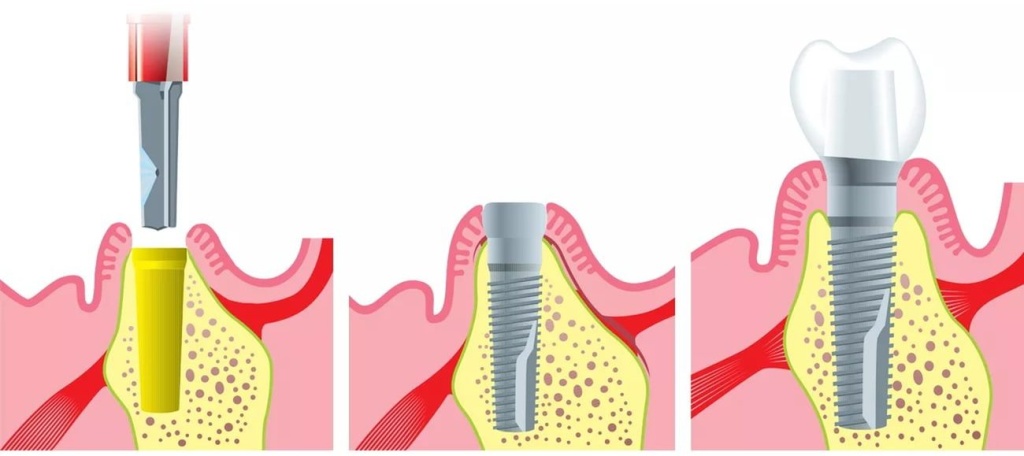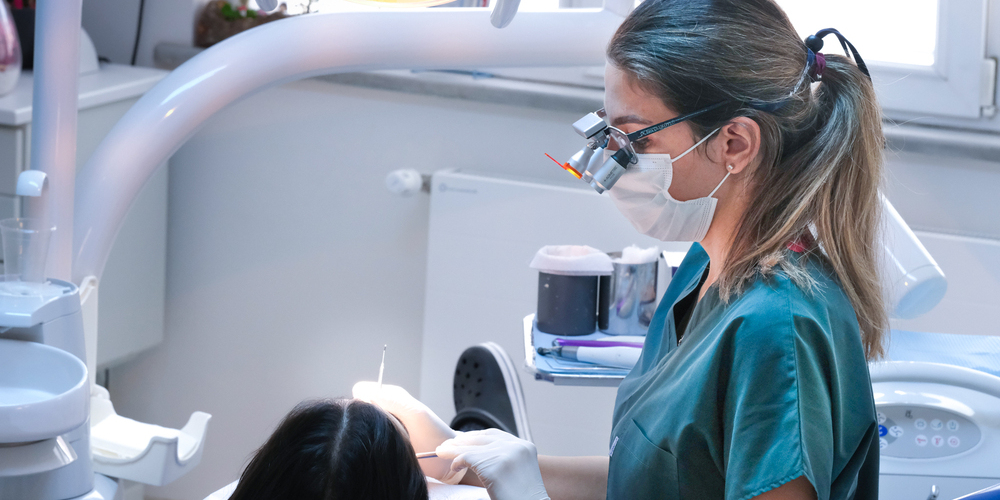
Implant Aftercare and Maintenance: What You Need to Know
Dental implants have rapidly become a popular solution for those seeking to replace missing teeth. These artificial tooth roots provide a stable foundation for fixed or removable replacement teeth, designed to blend seamlessly with your natural teeth. Implant aftercare is crucial to ensure the long-term success of your dental implants. Proper maintenance and regular check-ups will not only keep your implants looking and feeling great, but also help prevent potential complications. With good aftercare and maintenance, dental implants have a success rate of over 95% and can last a lifetime. Following your dentist’s recommendations and maintaining excellent oral hygiene are key to ensuring the longevity and functionality of your dental implants.
Key takeaway: Proper aftercare is crucial for the success and longevity of dental implants. Professional guidance ensures optimal healing and maintenance, ultimately leading to a healthier smile.
- Dental implants offer numerous benefits, including improved appearance, speech, and comfort.
- They also promote better oral health by preserving jawbone structure and preventing the shifting of adjacent teeth.
Professional guidance plays a vital role in ensuring that you follow the right steps post-surgery. This helps in preventing complications and ensuring that your implant heals correctly, providing long-term stability.
For more in-depth information on the materials and process involved in getting dental implants, visit this page.
For personalized care plans tailored to your needs, explore Fineup Clinic where expert advice and patient-focused services await.
Understanding Dental Implants
Dental implants are a popular and effective option for replacing missing teeth. They serve as artificial roots, providing a stable foundation for fixed or removable replacement teeth designed to match your natural teeth.
What Are Dental Implants and How Do They Work?
A dental implant is essentially a small titanium post that is surgically placed into the jawbone beneath the gum line. This post acts as a sturdy anchor for a replacement tooth or bridge. The key to the success of dental implants lies in their ability to fuse with the jawbone through a process called osseointegration. This biological bonding ensures that the implant is securely held in place, providing strength and stability comparable to natural teeth.

The Surgical Procedure: Step-by-Step
- Initial Consultation: A comprehensive examination, including X-rays and 3D imaging, to assess bone quality and plan the implant placement.
- Surgical Placement: During the surgery, the dentist places the titanium post into the jawbone.
- Healing Phase: Over several months, osseointegration occurs, allowing the implant to fuse with the bone.
- Abutment Placement: After healing, an abutment is attached to the implant post.
- Crown Placement: Finally, a custom-made crown is affixed to the abutment, completing the restoration.
Different Types of Implants
Several well-regarded brands manufacture dental implants, each offering unique features and benefits:
- Straumann: Known for high precision and reliability, Straumann implants are designed for optimal esthetics and longevity.
- Bego: Offers innovative solutions that ensure quick healing and strong integration with bone.
- Hiossen: Provides cost-effective options without compromising quality or performance.
- Osstem: Features advanced designs aimed at enhancing patient comfort and long-term success rates.
Choosing from these brands depends on individual needs and preferences, as well as professional recommendations.
Understanding these aspects of dental implants helps you make informed decisions about your oral health journey.
Immediate Aftercare Following Implant Surgery
Maintaining good oral hygiene practices after implant surgery is essential to prevent infections and promote optimal healing. Immediately following your procedure, it’s crucial to adopt specific care routines to ensure a smooth recovery.
Importance of Maintaining Good Oral Hygiene Post-Surgery
Proper oral hygiene minimizes the risk of infections that could compromise the success of your dental implants. Here’s how you can keep your mouth clean and healthy:
- Gentle Brushing Techniques: Use a soft-bristled toothbrush to gently clean your teeth, avoiding the surgical site for the first few days. Opt for low-abrasive toothpaste to protect sensitive areas.
- Rinsing with Warm Salt Water: Rinsing your mouth with warm salt water several times a day helps reduce inflammation and prevent infection. This simple yet effective practice can significantly aid in the initial healing phase.
Recommended Brushing Techniques
Brushing around dental implants requires careful attention. Follow these guidelines:
- Use a Soft-Bristled Toothbrush: A soft brush minimizes irritation around the surgical area.
- Low-Abrasive Toothpaste: Choose toothpaste that is gentle on your gums and implants.
- Avoiding Surgical Sites: For the initial days post-surgery, steer clear of brushing directly on the surgical site to avoid disruption.
Benefits of Rinsing with Warm Salt Water
Rinsing with warm salt water offers numerous benefits:
- Infection Prevention: Salt water possesses natural antibacterial properties, reducing the risk of infection.
- Promotes Healing: Regular rinsing helps soothe inflamed tissues and accelerates healing.
- Easy to Prepare: Simply mix half a teaspoon of salt in a cup of warm water.

Dietary Guidelines After Dental Implants
Your diet plays a significant role in recovery. Adhering to dietary guidelines ensures you avoid complications and support healing:
Safe Foods to Eat Immediately After Surgery
- Yogurt: Easy to consume and rich in probiotics, yogurt supports gut health during recovery.
- Smoothies: Nutritious and easy to digest, smoothies provide essential vitamins without requiring much chewing.
- Soft Foods: Opt for mashed potatoes, scrambled eggs, or oatmeal, which are gentle on your healing gums.
Hydration Is Crucial for Recovery
Staying hydrated aids in:
- Maintaining Moisture Levels: Proper hydration keeps your mouth moist, facilitating better healing.
- Flushes Out Toxins: Drinking enough water helps remove toxins from your body, promoting overall health.
Learn more about dental implants at Fineup Clinic
By adhering to these oral hygiene practices and dietary guidelines, you’ll set a strong foundation for successful implant integration and long-term health.
Long-Term Maintenance for Dental Implants
Maintaining the health and longevity of dental implants requires a dedicated approach to oral hygiene and regular professional check-ups. Regular follow-up appointments, typically every three to six months, play a vital role in monitoring implant health and addressing any potential issues early on. These visits allow your dentist to:
- Assess the stability of the implant
- Check for signs of infection or inflammation
- Ensure proper alignment and function
Daily oral care practices are just as crucial. Incorporating specific techniques can help keep implants in optimal condition:
Brushing Techniques
Use a soft-bristled toothbrush to gently clean around the implant area. Consider an electric toothbrush with a small head for more precise cleaning. Aim to brush at least twice daily using low-abrasive toothpaste to prevent damage to the implant surface.

Flossing
Regular flossing is essential. Special implant-specific floss or interdental brushes can effectively clean between teeth and around the implant, reducing plaque build-up.
Mouth Rinses
Antimicrobial mouth rinses can be beneficial in maintaining oral hygiene by reducing bacteria that cause infections.
Avoid Hard Foods
While implants are designed to be durable, consistently chewing on hard foods like ice or nuts can cause wear over time. Opt for softer alternatives when possible.
Smoking and Vaping
Smoking and also vaping can significantly impair the healing process and increase the risk of implant failure. Quitting smoking or reducing its consumption is highly recommended.
Hydration
Keeping your mouth hydrated helps maintain saliva production, which naturally cleanses your mouth and protects against bacteria.
Lifestyle Choices
Avoid smoking and limit alcohol consumption as these habits can impair healing and negatively affect implant stability.
Regular check-ups for implants combined with diligent daily care routines ensure that your dental implants remain healthy and functional. Adhering to these practices not only extends the life of your implants but also promotes overall oral health.
Recognizing Signs of Complications After Dental Implants
Signs of complications after dental implants can be subtle or obvious, but knowing what to watch for is crucial. Early detection and prompt action are key to addressing any issues that may arise.

Common Signs of Complications:
- Prolonged Bleeding: It’s normal to experience some bleeding post-surgery. However, if bleeding continues beyond 24 hours or is excessively heavy, it might indicate a problem.
- Severe Pain: Mild discomfort is expected after the procedure, but severe or worsening pain that doesn’t respond to prescribed painkillers warrants immediate attention.
- Swelling and Redness: While some swelling is typical, significant or persistent swelling and redness around the implant site could signal an infection.
- Fever: A fever post-surgery can be a sign of an underlying infection. Monitoring body temperature during the recovery period is essential.
- Implant Mobility: Dental implants should feel stable. If you notice any looseness when biting or chewing, it might mean the implant hasn’t integrated properly with the jawbone.
- Unpleasant Taste or Odor: Persistent bad taste or foul smell could indicate an infection or other complications at the implant site.
What to Do if You Notice These Signs:
- Contact Your Dentist Immediately: Any unusual symptoms should be reported to your dental professional without delay.
- Follow Post-Operative Instructions: Adhering strictly to post-operative care guidelines can help mitigate risks and promote healing.
- Regular Monitoring: Regular check-ups allow early identification and management of potential issues.
Recognizing these signs and seeking timely professional intervention ensures the longevity and success of your dental implants.
The Healing Timeline Post-Surgery: What to Expect After Getting Dental Implants
Understanding the healing process after dental implants is essential for setting realistic expectations. Typically, the recovery timeline spans 3 to 6 months, but this can vary based on individual factors.
Typical Duration for Recovery
1. Initial Days: Swelling and Discomfort
Swelling and discomfort are expected. These symptoms generally peak within 48–72 hours post-surgery.
2. First Week: Soft Tissue Healing
Soft tissue begins to heal. Patients should stick to a soft diet and avoid strenuous activities.
3. First Month: Pain and Swelling Reduction
By this time, most patients experience significant reduction in pain and swelling. Regular follow-ups ensure proper healing.
4. 3–6 Months: Osseointegration Completion
Osseointegration completes, providing a stable foundation for the dental prosthesis.
Factors Influencing Healing Time
Several elements can impact the recovery timeline:
- Overall Health: Patients in good health tend to heal faster. Conditions like diabetes or compromised immune systems can prolong recovery.
- Bone Quality: Stronger jawbones facilitate quicker osseointegration. Bone grafts may be needed for those with insufficient bone density, potentially extending the timeline.
- Smoking Habits: Smoking adversely affects blood flow and slows healing. Quitting smoking before and after surgery significantly improves outcomes.
- Pre-existing Medical Conditions: Issues such as osteoporosis or periodontal disease can delay healing. A thorough medical assessment helps tailor an appropriate care plan.
Enhancing Your Recovery
To support a smooth healing process:
- Follow all post-operative instructions from your dentist
- Maintain excellent oral hygiene
- Attend all scheduled follow-up appointments
- Avoid smoking and alcohol consumption
- Stick to a nutrient-rich diet that promotes tissue repair
Paying attention to these details ensures that your dental implant journey progresses as smoothly as possible.
Ensuring Long-Term Success with Your Dental Implants
Maintaining the longevity of your dental implants goes beyond regular check-ups and daily oral care practices. Here are some long-term care tips for dental implants from experienced dentists:
- Consistent Oral Hygiene: Brush twice a day using a soft-bristled toothbrush and low-abrasive toothpaste. Pay special attention to the areas around your implants to prevent plaque build-up.
- Floss Diligently: Use floss specifically designed for dental implants or an interdental brush to clean between the implants and surrounding teeth. This helps remove food particles and bacteria that can lead to gum disease.
- Regular Professional Cleanings: Schedule professional cleanings at least twice a year. These sessions allow your dentist or hygienist to clean areas you might miss during daily brushing and flossing.
- Avoid Hard Foods: Chewing on hard foods like ice, hard candies, or nuts can damage your implants. Opt for softer alternatives when possible to protect your investment.
- Wear a Night Guard: If you grind or clench your teeth at night, wearing a custom night guard can prevent undue stress on your implants, reducing the risk of damage.
- Monitor Changes in Your Mouth: Be vigilant about any changes in how your implants feel. If you notice any loosening, discomfort, or swelling, contact your dentist immediately.
- Stay Hydrated: Drinking plenty of water helps maintain saliva flow, which is essential for keeping your mouth clean and free of harmful bacteria.
These practical steps contribute significantly to the long-term success of your dental implants, helping you maintain a healthy smile for years to come.
Prioritize Your Implant Aftercare Journey Towards a Healthy Smile!
Following aftercare guidelines is crucial for the success of your dental implants. Taking professional advice seriously ensures optimal healing and reduces the risk of complications.
Key Reasons to Follow Post-Operative Instructions:
- Enhanced Healing: Proper care promotes quicker and more effective healing, allowing your implants to integrate seamlessly with your jawbone.
- Infection Prevention: Good oral hygiene and recommended rinsing routines help prevent infections that could jeopardize your implant’s stability.
- Longevity of Implants: Regular follow-up appointments and consistent daily care extend the life of your implants, safeguarding your investment.
Ignoring these guidelines can lead to unnecessary discomfort and potential implant failure. By prioritizing aftercare, you’re investing in a healthy, long-lasting smile.

Visit Fineup Clinic for Personalized Care Plans Tailored To You!
Experiencing issues with your dental implants or seeking expert advice? Fineup Clinic offers specialized services designed to ensure the health and longevity of your implants. Our team of experienced dentists provides:
- Personalized care plans tailored to your individual needs.
- Comprehensive follow-up appointments to monitor implant health.
- Patient education resources, like this blog, to keep you informed.
Ready for a consultation?
Contact Fineup Clinic today and take the next step towards a healthier smile with our expert guidance. Your journey to optimal oral health starts here.
FAQs (Frequently Asked Questions)
What are dental implants and how do they work?
Dental implants are artificial tooth roots that are surgically placed into the jawbone to provide a stable foundation for replacement teeth. The process involves osseointegration, where the implant fuses with the jawbone, ensuring durability and functionality.
Why is aftercare important following dental implant surgery?
Proper aftercare is crucial for the success and longevity of dental implants. It helps prevent infections, promotes healing, and ensures optimal maintenance. Following professional guidance during this period is essential for achieving the best outcomes.
What immediate aftercare practices should I follow after implant surgery?
Maintaining good oral hygiene post-surgery is vital. Use a soft-bristled toothbrush and low-abrasive toothpaste for brushing. Rinsing with warm salt water can help prevent infections. Additionally, stick to a diet of soft foods like yogurt and smoothies to aid recovery.
How often should I have check-ups for my dental implants?
It is recommended to have follow-up appointments every three to six months to monitor the health of your implants and address any potential issues that may arise over time.
What signs should I look out for that may indicate complications with my dental implants?
Common signs of complications include prolonged bleeding, severe pain, or swelling around the implant site. If you experience any of these symptoms, it is important to contact your dentist immediately.
What can I expect in terms of healing time after getting dental implants?
The typical recovery duration following dental implant surgery ranges from three to six months. This timeframe can vary based on individual factors such as overall health, bone quality, and lifestyle habits like smoking.
